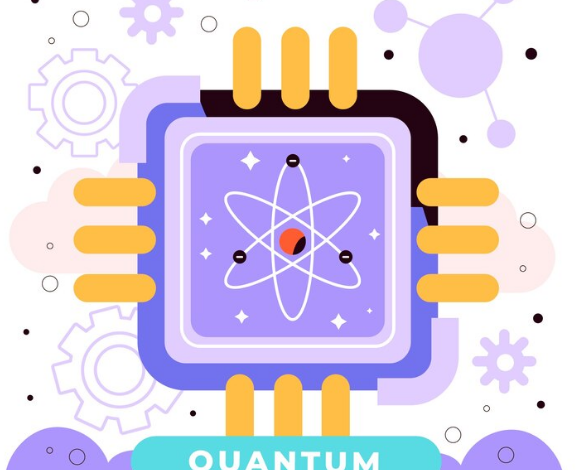The Future of Telecommunication: Innovations Shaping Our Connected World

Table Of Contents
- Introduction to Modern Telecommunication
- 5G Networks: A New Era of Connectivity
- Internet of Things (IoT): Connecting Devices Globally
- Artificial Intelligence in Telecommunication
- Quantum Computing: The Next Frontier
- Enhanced Security Measures
- Virtual and Augmented Reality
- Sustainability in Telecommunication
- Conclusion
Introduction to Modern Telecommunication
Telecommunication has revolutionized the way we connect, communicate, and conduct business. From the inception of the telephone to the rise of the Internet, each advancement has profoundly reshaped our world. Today, we are at the cusp of another significant evolution driven by rapid technological innovations. Organizations like Veon are at the forefront of this transformation, leveraging cutting-edge technology to pave the way for a more connected future. The question on everyone’s mind is: What lies ahead in this constantly advancing field?
5G Networks: A New Era of Connectivity
The introduction of 5G networks represents significant progress in telecommunications within recent years. 5G technology is ready to completely transform many industries by offering breakneck speeds, lower latency, and the ability to connect multiple devices simultaneously. For example, 5G allows for live telemedicine appointments and distant surgical procedures in the medical field. In transportation, it supports the advancement of autonomous vehicles through enhanced data communication and real-time traffic management systems. The potential applications of 5G are virtually limitless, promising to revolutionize our lives and work.
Internet of Things (IoT): Connecting Devices Globally
Another revolutionary advancement in communication is the Internet of Things (IoT). IoT enables everyday objects, such as household appliances and factory equipment, to link to the internet, forming a system of intelligent devices. IoT Evolution World predicts that there will be 75 billion IoT devices by 2025. This massive connectivity will facilitate various applications, such as smart refrigerators that can manage and order groceries or advanced industrial processes that optimize production in real time. Intelligent cities benefit significantly from IoT through energy management, security, and urban planning improvements.
Artificial Intelligence in Telecommunication
Artificial Intelligence (AI) is advancing significantly in the field of telecommunication. AI technology is boosting productivity and enhancing user interactions in all areas. Service providers use AI to improve network performance, predictance needs, and enhance customer service. AI-driven chatbots and virtual assistants are more adept at addressing customer questions, delivering fast and precise answers, and enhancing overall customer contentment. Moreover, AI algorithms can examine large volumes of data to forecast network problems before they happen, ultimately decreasing downtimes and improving the dependability of services.
Quantum Computing: The Next Frontier
Quantum computing offers the potential for immense computational power, surpassing traditional computers. Although still in its infancy, it could transform data processing and encryption in telecommunications by solving complex problems that classical computers can’t handle. This technology might revolutionize industries and research, such as speeding up drug discovery through advanced molecular simulations or improving cybersecurity with unbreakable encryption. The impact on telecommunications could be significant and far-reaching.
Enhanced Security Measures
As our world becomes more interconnected, the need for robust security measures has never been greater. Innovations in blockchain technology and advanced encryption methods pave the way for more secure communication networks, safeguarding personal and corporate data. Enhanced security protocols are crucial as telecommunication infrastructure becomes a critical component of national security. With its decentralized and immutable nature, blockchain technology offers a promising secure data transmission and storage solution. Meanwhile, advanced encryption methods are evolving to protect sensitive information from increasingly sophisticated cyber threats.
Virtual and Augmented Reality
Virtual Reality (VR) and Augmented Reality (AR) are set to enhance telecommunication by providing more immersive communication experiences. Virtual reality (VR) and augmented reality (AR) are set to revolutionize remote work and education by creating immersive 3D environments for meetings and training. These technologies can enhance customer experiences through virtual product demos and interactive marketing. As VR and AR advance, they will offer new, dynamic ways to communicate and interact in telecommunications.
Sustainability in Telecommunication
As the telecommunication industry grows, its environmental impact also increases. To address this, businesses focus on sustainability by reducing carbon emissions, using energy-efficient infrastructure, and adopting renewable energy sources like solar and wind. Additionally, efforts are being made to cut electronic waste through recycling and eco-friendly product designs. These initiatives aim to create a more environmentally friendly future for the industry.
Conclusion
The future of telecommunication is optimistic and driven by remarkable technological innovations. These advancements are not just shaping our connected world; they are also providing endless opportunities to improve our lives and businesses. From the rollout of 5G networks and the rise of IoT to the potential of quantum computing and the impact of AI, the telecommunication landscape is undergoing a profound transformation. As we continue to embrace these innovations, telecommunication will break barriers and set new paradigms in connectivity, leading us toward a more connected and intelligent future.
Keep an eye for more news & updates on TechProMagazine!





